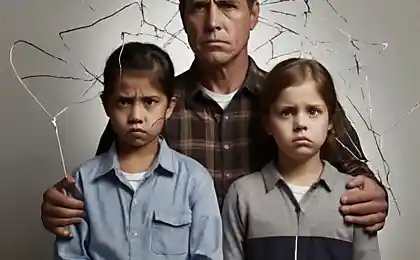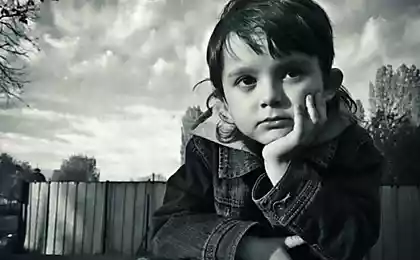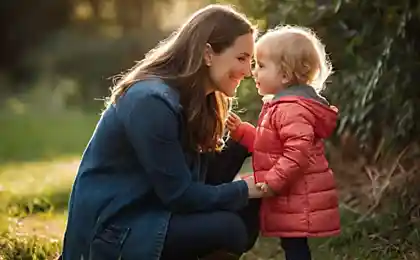210
Disaffected children

Every child needs parental love a priori. But it is hard to deny the fact that many children, for one reason or another, do not receive this love. This deficiency can have a long-term impact on their psycho-emotional development and perception of the world. It is important to understand that parental love and attention is not just a blessing, but the basis for the formation of a healthy personality. In this article, we will talk about how unloved children can face various difficulties and why it is important to provide them with full emotional support from an early age.
The ecology of parenthood: the impact of dislike on child development
Childhood is the period when the basic emotional and psychological attitudes of a person are formed. Emotional support from parents plays a key role in this process. Disgruntled children are those who do not receive enough attention, warmth and care from their parents, which can lead to various problems in the future.
Psychologists say that a lack of parental love and warmth can lead to disorders in interpersonal relationships, problems with self-esteem and difficulties in emotional regulation. These children often experience anxiety, fear of loneliness and a sense of abandonment. At the neuropsychological level, such conditions may slow the development of certain areas of the brain associated with social interaction and emotional perception.

Why do children lack love?
There are many reasons why children may lack the attention and love of their parents. Among them:
- Psychological or emotional disability of parents: Sometimes parents are unable to provide the child with the attention and care they need because of their personal problems, such as depression, stress, or emotional immaturity.
- Lack of time and attention: In today’s environment, when parents often face workloads, stress and financial problems, attention and time for children can be limited.
- Dysfunctional family relationships: In families where conflict, violence, or other destructive behaviors are present, children may lack warmth and care.
- Inability to express love: Some parents who grew up in families where it was not customary to show emotions simply do not know how to properly show love and attention to their child.
How do unloved children show their problems?
Disgruntled children may exhibit a variety of behavioral and emotional problems. Here are some of them:
1. Problems with self-esteem
Lack of love and support from parents can lead to low self-esteem. These children are often unsure of their abilities, afraid to take the initiative and often feel insecure in social situations.
2. Anxiety and depression
Anxiety is one of the most common manifestations in unloved children. They may be more sensitive to criticism, fear rejection, and often worry about real or perceived loss of loved ones.
3. Relationship difficulties
The lack of parental love can affect the ability to build healthy relationships in the future. Dissatisfied children may have difficulty trusting others, including their partners and friends.
4. Behavioral problems
Some children may react to a lack of love with aggression, excessive irritability, or isolation. These behavioral problems are the result of an inability to cope with emotional experiences.
What can parents do?
It is important to understand that it is never too late to start showing love and care for your child. Even if the family relationship has been challenging or the child has not received enough attention in the past, there is always an opportunity to build an emotional connection and help the child reach their potential. Here are a few steps that can help:
- Spend more time with your child: Try to allocate time for joint classes, games and walks. It is important that the child feels your attention and care.
- Listen and support: Listen carefully to your child, even if their problems seem minor. Support them in difficult times and show that you are there.
- Develop trust: Create an atmosphere of trust and security where children can openly express their feelings and experiences.
- Apply positive education: Use positive parenting techniques that focus on support, encouragement, and love, not punishment or criticism.
Conclusion
Parental love is the basis on which the future of the child is built. Disgruntled children face many difficulties that can affect their emotional and mental development. However, with understanding, attention and care, you can rebuild trust and strengthen relationships, helping your child become a confident and happy person. Emotional support from parents is the key to harmonious development and healthy relationships in the future.
From Aristotle to Altman: Why “emergence” is a key term for understanding AI
Manipulator Partner: Why does he need this game?























